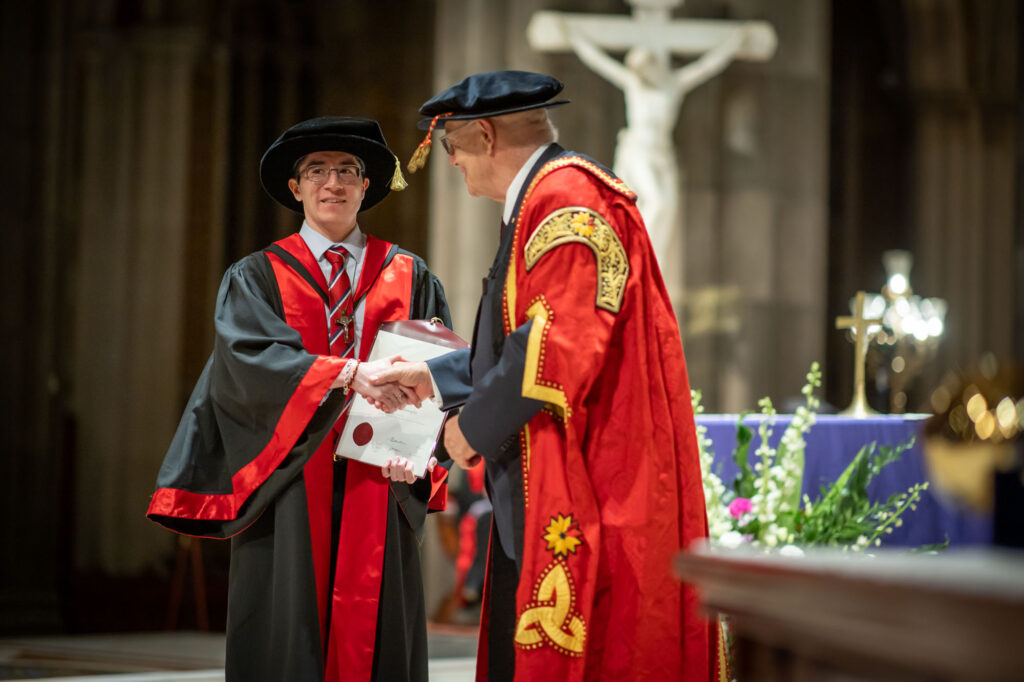Research
As a college of the University of Divinity, CTC has a long tradition of research excellence, and produces world-class research in all theological disciplines. The University actively fosters a vibrant research culture through publications, conferences, seminars, and visiting scholars.
Many of our graduates have gone on to academic positions in Australia and overseas, and CTC along with the University of Divinity has a success rate well above the national average.
As a research student you will be part of this vibrant and dynamic research culture that opens up new possibilities for future employment, collaboration, conferences, and publications.
Research units
- Research Methodologies
- Minor Thesis (16,000 words)
Research degrees
The University of Divinity offers the following higher degrees by research.

40,000 word thesis

100,000 word thesis

Doctor of Professional Practice
65,000 word thesis and advanced coursework units
Current research topics include:
- Book of Revelation
- The church in Sandhurst
- Ignatian Spirituality
- John of the Cross and the contemporary desire for authenticity (Charles Taylor)
- Contemplation and spiritual authority
- Unity of body and mind
- Unity of language, thought and symbol
- Charism and Catholic identity
- Charismatic dynamic of the Catholic church in Australia
- Marian spirituality
- Young Christian Workers
- Von Balthasar and Rahner
- Intimacy of suffering
- Transcendental ego and intersubjectivity in Husserlian literature
Title Conscientious Objection in Medical Practice: A Content Analysis of the Victorian Parliamentary Discussion Establishing the Abortion Law Reform Act 2008
Abstract This thesis explores Victoria’s abortion legislation as it relates to health practitioners exercising conscientious objection to induced abortion. Through a content analysis of the pertinent parliamentary debate, this research identified the dominant ethical opinions underpinning this legislation thus expounding why this law treats conscientious objection the way it does.
Information for future research candidates
Information for current research candidates
Resources
Please logon to ARK to access the following:
- CTC Resources on ARK
- HDR Resources on ARK
Study Carrels
A number of lockable study carrels are available in the Mannix Library for use by research students. Allocations are made at the beginning of each year. Applications should be made to the Deputy Master by the end of November.
Researcher support
Supervision
Each HDR candidate works with at least two supervisors, a primary supervisor and an associate supervisor. The role of the supervisor is to support, guide, and encourage you in your work, as well as give you feedback on your writing. As you develop as a researcher, the relationship between the HDR candidate and the supervisor undergoes subtle changes as you become the expert in your field of research.
Training opportunities
The SGR offers several different training opportunities, and we are continuing to develop this program. The aim of training is to equip you with the skills you need to compete your dissertation, but also to prepare you for life after completion. Areas covered include general orientation to the research environment, opportunities to participate in research methodologies units, training for the first major milestone—the confirmation panel, academic writing skills development, workshops on presenting and publishing your research and planning your career.
Research seminars and conferences
CTC and the University of Divinity run regular research seminars and conferences. Engaging with other researchers and scholars, listening to their work, and presenting your own, helps to develop critical thinking and engagement, and broadens your knowledge of a breadth of disciplines and research. It is another way of building community.
See key research dates.



